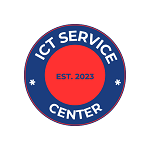Old iPads Get Slower? Yes, may become slower due to aging hardware and software updates. As iPads age, their processors and internal components may struggle to keep up with newer applications and operating system demands.
This can result in slower performance and decreased responsiveness. Additionally, software updates designed for newer iPad models may not be fully optimized for older devices, further contributing to a decline in speed. However, maintenance and regular performance optimizations can help mitigate the impact of aging on older iPads.
This article will explore the factors that contribute to the slowing down of old iPads and provide tips for maintaining and improving their performance over time. By implementing these strategies, you can potentially extend the lifespan and usability of your aging iPad.
Understanding The Performance Of Old Ipads
Over time, old iPads may experience a decrease in performance. This is due to the advancements in technology and software updates that are not tailored to older models. As a result, older iPads may run slower and struggle to keep up with the demands of newer apps and programs.
Regular maintenance and optimization can help to mitigate these issues to some extent.
Understanding the Performance of Old iPads
Older iPads inevitably experience a decline in performance over time, leading many users to wonder, “Do old iPads get slower?” The truth is, several factors can affect the performance of aging tablets, impacting their speed and responsiveness. In this post, we’ll explore the various factors that contribute to the performance of old iPads and provide insights into how users can optimize and maintain their devices for better functionality.
Factors Affecting Ipad Performance
As iPads age, several elements can contribute to their declining performance. Understanding these factors can help users make informed decisions about optimizing their devices. Here are the primary elements affecting iPad performance:
Battery Health
The battery health of an iPad can significantly impact its overall performance. As the battery degrades over time, it may struggle to provide sufficient power to support the device’s operations, leading to slowdowns and potential instability.
Software Updates
As new software updates are released, older iPads may struggle to keep up with the demands of the latest operating systems. Running newer software on older hardware can lead to performance issues and reduced responsiveness.
Storage Capacity
Limited storage capacity can impede an iPad’s performance, as reduced space can hinder the device’s ability to function optimally. Overloaded storage may lead to slower operations and decreased overall efficiency.
Ram And Processing Power
Older iPad models often have less RAM and processing power compared to newer versions, impacting their ability to handle resource-intensive tasks and applications.
Optimizing and maintaining older iPads is essential for preserving their performance and extending their lifespan. By addressing these factors, users can mitigate the effects of aging and enjoy a smoother, more responsive tablet experience.

Effect Of Operating System Updates On Old Ipads
Operating system updates can significantly impact the performance of older iPads. As new software updates are released, older iPad models may struggle to keep up with the demands of the latest operating systems, leading to slower performance and reduced usability. One of the key factors influencing the speed and functionality of older iPads is the effect of operating system updates.
Impact Of New Features And Software Updates
When Apple releases new operating system updates, they are often accompanied by exciting new features and enhanced functionalities. While these updates are designed to improve the overall user experience, they can have a detrimental effect on older iPad models, causing them to slow down and become less responsive.
Older iPads may struggle to handle the increased demands of the latest software updates, leading to slower app loading times, reduced multitasking capabilities, and overall diminished performance. The introduction of new features and software updates can place a strain on older hardware, making it challenging for older iPad models to keep up with the latest advancements.
To revitalize the performance of older iPads, Apple may optimize future software updates to ensure compatibility with older hardware, but it is essential for users to be aware of the potential impact of new features and software updates on their aging devices.
Operating system updates can have a profound impact on the performance of old iPads. With each new software update, older iPad models may struggle to keep up with the demands of the latest operating systems, leading to slower performance and reduced usability. One of the key factors influencing the speed and functionality of older iPads is the effect of operating system updates.
Tips For Improving The Performance Of Old Ipads
As technology advances, older iPad models may begin to exhibit slower performance due to aging hardware and the demands of newer software updates. However, there are various ways to optimize and improve the performance of older iPads to ensure a smoother and more efficient user experience.
Optimizing Settings And Configurations
One of the key strategies for improving the performance of old iPads is to focus on optimizing the device’s settings and configurations. By revisiting certain settings, users can make targeted adjustments to enhance the overall speed and responsiveness of the device. Here are some essential settings to consider:
- Disable Background App Refresh to reduce unnecessary background activity and conserve system resources.
- Clear out clutter by removing unused apps, photos, and videos to free up storage space and reduce strain on the device’s storage capacity.
- Limit visual effects and motion to streamline the user interface and minimize unnecessary visual processing.
- Enable Low Power Mode to conserve battery life and optimize performance when the battery is running low.
Updating Software And Apps
Regularly updating the iPad’s software and installed applications is crucial for maintaining optimal performance. Software updates often include performance enhancements, bug fixes, and security improvements that can positively impact the device’s speed and stability. Similarly, updating apps to their latest versions can bring performance optimizations and compatibility improvements tailored for older hardware.
Managing System Resources
Older iPad models may benefit from proactive resource management to ensure efficient performance. By monitoring system resources and taking steps to manage them effectively, users can minimize performance bottlenecks and maintain smooth operation. Consider the following resource management tips:
- Restart the iPad periodically to clear system memory and refresh system processes.
- Close unused apps and browser tabs to free up memory and processing power.
- Monitor background activity and prioritize essential tasks to reduce unnecessary system strain.
Conclusion
Improving the performance of old iPads is a proactive and ongoing process that involves optimizing settings, updating software and apps, and managing system resources. By implementing these tips and strategies, users can unlock the full potential of their older iPad models and enjoy a smoother and more responsive user experience.
Extending The Lifespan Of Old Ipads
Old iPads may slow down over time, but there are ways to extend their lifespan. Clearing cache, updating software, and managing apps can help optimize performance. Regular maintenance and proper care can help old iPads run smoother for longer periods.
Battery Health And Performance
As iPads age, the battery can degrade, impacting both the device’s performance and overall lifespan. To ensure optimal performance, it’s important to monitor the battery health of older iPads. Regularly checking and maintaining the battery can help prevent slow-downs and ensure that the iPad continues to operate efficiently.
Older iPads can be revitalized and their lifespan extended with a few key tips and tricks. Whether it’s optimizing battery health, managing storage, or updating software, there are several ways to keep old iPads running smoothly for longer.
- Regularly check and maintain the battery health of older iPads.
- Optimize storage by removing unnecessary apps and files.
- Keep the software updated to ensure compatibility and performance improvements.
- Use power-saving features and settings to prolong battery life.
By implementing these practices, iPad users can enjoy a longer lifespan and improved performance from their older devices.
Frequently Asked Questions On Do Old Ipads Get Slower?
Do Old Ipads Get Slower Over Time?
Older iPads may seem slower due to newer software updates and apps that require more processing power. However, hardware degradation over time can also contribute to a decline in speed. Regular maintenance and updates can help improve performance.
Conclusion
As technology advances, older iPad models may experience slower performance due to outdated hardware. However, optimizing settings and regularly updating software can help improve functionality. It’s important to consider the trade-offs between performance and the cost of upgrading to a newer device.
Keep in mind the potential limitations as well as ongoing support for older iPads.

